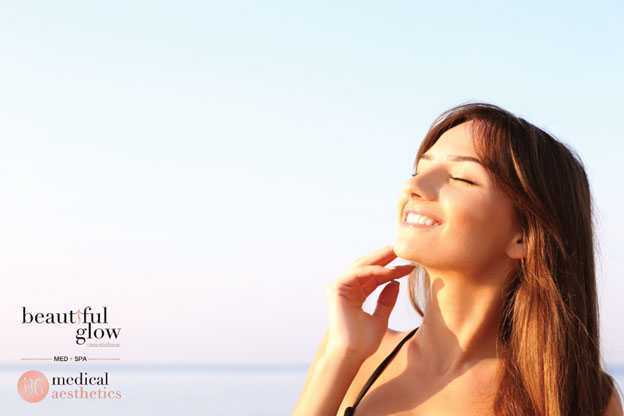
While wearing sunscreen is better than not wearing any, it is best to choose a sunscreen with broad-spectrum UV protection of at least SPF 30. These recommendations apply to people of all skin tones. Ideally, you should also apply sunscreen 30 minutes before going out into the sun.
Does SPF matter?
In sunscreen, SPF helps to block your skin from the sun’s radiation. The sun emits two types of radiation: UVA and UVB rays.
UVA rays contribute to the signs of aging in the skin, such as wrinkles and sagging. UVB rays are more carcinogenic and often responsible for sunburns. UVA rays also make UVB rays more reactive, so the two can be deadly combined.
SPF works by extending your skin’s natural defenses against the sun’s rays. For example, an SPF of 15 provides about 15 times more protection than just your normal skin without sunscreen. An SPF of 50, then, would provide 50 times more protection than skin without sunscreen. Choosing a broad-spectrum sunscreen means it’s a type of sunscreen that will block out both UVA and UVB rays.
Does SPF affect how long the sunscreen protects your skin?
Sunscreen lasts an average of two hours. That means you should plan to reapply every two hours. If you sweat a lot, notice your skin burning or spend time in the water, you’ll want to reapply more frequently.

Choosing a sunscreen
For low exposure to the sun, a moisturizer or makeup with a base of SPF 15 built in is sufficient. However, for other situations, consider your outdoor activity to determine what kind of sunscreen you should use.
Water-resistant sunscreen can offer good protection for water activities, but it may not be appropriate if you are playing a sport that will cause the SPF to drip into your eyes. It is also important to note that no sunscreen is truly waterproof.
Spray sunscreen is very popular, especially among parents of wiggling and running children. Spray sunscreen may release harmful chemicals that your child can breathe in.
You can still get a tan while wearing sunscreen. Sunscreen needs to be continually applied and it can be rubbed off, sweated off, or washed away if you’re spending a lot of time in the pool or water.
